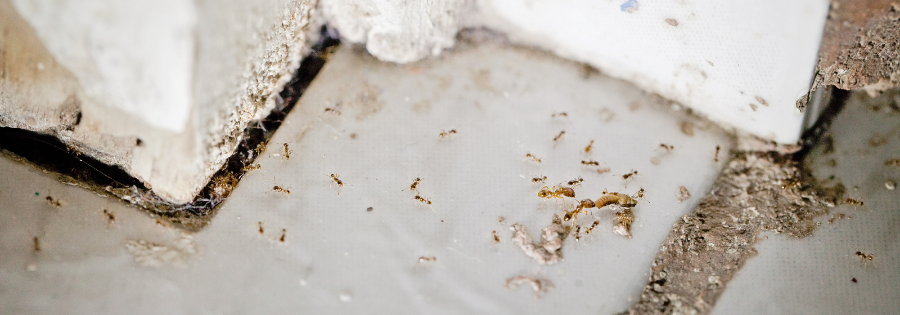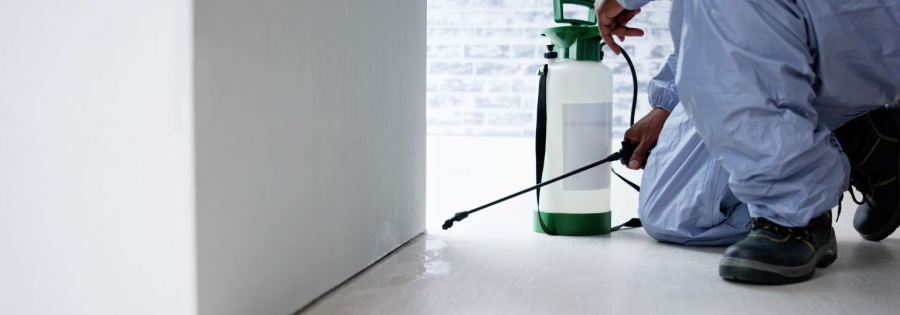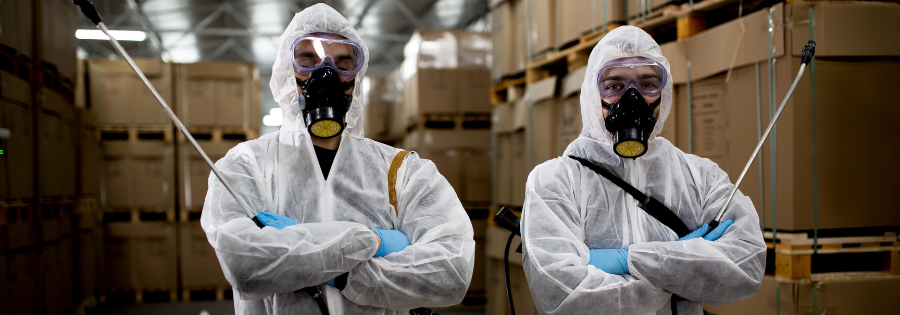The Ultimate Guide to Seasonal Pest Control

As a business owner, you have a lot on your plate. You’re focused on leading your team and keeping your customers happy. The last thing you need is the hassle of pests causing trouble at your workplace.
Whether it’s the hot days of summer or the cold winter season, keeping your business pest-free is a must. In this guide, we’ll simplify the important seasonal pest control strategies to ensure your workplace stays pest-free throughout the year.
Understanding Seasonal Pest Patterns
Seasonal pest patterns are a big factor to consider in year-round pest control. Just as the seasons change, so do the behaviors and activities of common pests. For example, warmer months often bring out ants, flies, and other insects in search of food and water sources. And the colder seasons may drive rodents indoors to seek warmth and shelter.
Knowing these patterns helps business owners predict and deal with possible pest problems ahead of time. It’s a key part of creating a successful pest control plan.
Effective Seasonal Pest Control Treatments
Year-round pest control treatments can vary based on the season and the specific pests you’re dealing with. Here are some general guidelines for seasonal pest control methods:
Spring
Ants and Termites: Spring is when ants and termites become active. Treatments often involve baits and barrier applications to prevent them from entering your property.
Mosquitoes: Mosquito treatments typically involve eliminating standing water sources, using larvicides, and applying barrier treatments.
Summer
Flies and Ants: Continue with baiting and barrier treatments for ants. For flies, use fly traps and practice proper sanitation to reduce attractants.
Stinging Insects: Summer is when stinging insects like bees and wasps are most active. Nest removal and preventive measures are essential summer pest control tips.
Fall
Rodents: As temperatures drop, rodents seek shelter. Implement rodent control measures such as bait stations, traps, and sealing entry points.
Cockroaches: Cockroach treatments may involve baits, insect growth regulators, and crack and crevice applications.
Winter
Rodents: Continue with rodent and pest control in the winter to prevent infestations during the colder months.
Bed Bugs: Bed bug infestations can peak in winter due to increased indoor activities. Treatments for these winter pests include insecticides, steam, and thorough inspections.

Remember, effective pest control is a year-round commitment. Regular inspections and proactive measures are crucial to maintaining a pest-free environment, regardless of the season.
For the best line of defense, it’s important to work with a year-round pest control service that can tailor treatments to your specific needs and the seasonal challenges your business may face.
Proactive Prevention
The best way to deal with pests is to prevent them from entering your business in the first place. Here’s a closer look at proactive pest control strategies:
- Sealing Entry Points: Pests can enter your business through even the tiniest cracks and openings. Regularly inspect and seal potential entry points, including gaps around doors and windows, utility penetrations, and vents. This creates a physical barrier that keeps pests out.
- Sanitation Practices: Proper sanitation is key to pest prevention year-round. Keep your premises clean and free from food debris, spills, and standing water that can attract pests. Regularly empty trash bins, maintain a clean kitchen, and store food items in sealed containers. A clean environment is less appealing to pests.
- Landscaping Maintenance: Landscaping can be both an attractant and a barrier for pests. Trim vegetation away from your building to eliminate hiding spots for pests like rodents and ensure that plants and trees do not touch the structure.
- Regular Inspections: Regular building and pest inspections are crucial for early pest detection. A trained pest control professional can identify signs of pest activity, potential entry points, and areas in need of attention.
- Employee Training: Educate your staff about the importance of pest prevention and sanitation. Encourage them to report any pest sightings or concerns promptly.
- Storage Practices: Proper storage is essential for preventing pests in businesses that handle inventory. Use sealed containers for storage, rotate stock, and regularly inspect stored items for signs of a pest infestation.

By implementing these proactive measures, you create a hostile environment for pests, making it difficult for them to enter, thrive, or reproduce in your business. Regularly revisiting and fine-tuning your prevention efforts is key to maintaining a pest-resistant workplace year-round.
Contact the Experts
Don’t let pest problems disrupt your business! Coastal Spray is here to help you keep your workplace pest-free, no matter the season. Our industrial pest control services are tailored to your specific needs, providing you with peace of mind and a pest-free environment.

Take the first step in securing your business from seasonal pests by reaching out to Coastal Spray today. We’re your partners in seasonal pest control, and we’re here to ensure your business remains pest-free and thriving. Contact us to schedule a consultation and keep your workplace pest-free all year round!